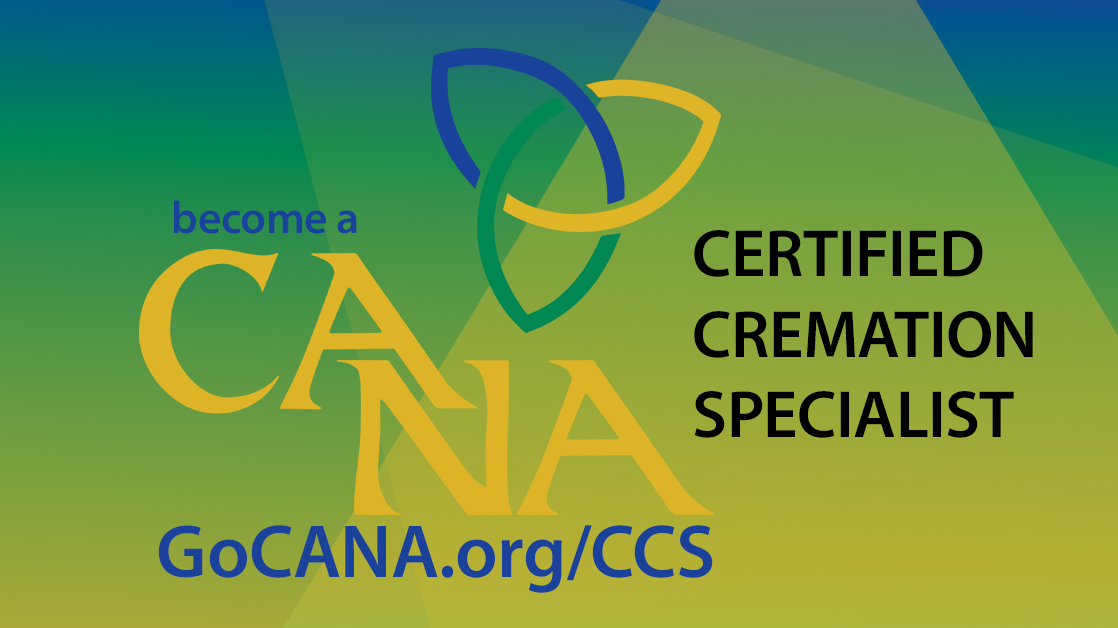Announcing a First-of-Its-Kind Credential for Cremation Specialists
CANA Launches Certified Cremation Specialist Training Program
WHEELING, IL— By 2033, cremation is predicted to be the preferred form of disposition in every state. Too many businesses see this fact as a threat to their success because they think cremation families are different than others. The Cremation Association of North America (CANA) has developed an all new training program to help find the opportunity in cremation, grow staff’s confidence to serve all families with compassion, and support a business’s sustainability. Introducing the CANA-Certified Cremation Specialist, a first-of-its-kind training program accepting applications beginning December 1, 2022.
In an increasingly digital world, funeral professionals have a limited amount of time to make a connection with their client families. To meet this rising need, the CANA-Certified Cremation Specialist (CCS) program focuses on soft skills—critical communication skills, ethical decision-making and allowing families the space to grieve. Because these interactions make up the day-to-day work of funeral directors and arrangers, new skills can be put to practice right away, meaning an immediate return on investment.
“Enlisting my entire funeral directing staff in this certification was money well spent,” asserts Fairmount Memorial Association COO Sandra Walker. Fairmount is based in Spokane, Washington where the cremation rate is near 80%. “Learning drives confidence and competence. The team has gained confidence and is better equipped to help families choosing cremation. Our funeral directors are securing price shoppers by using the tools given to them in this program. I highly recommend the program for all funeral directors and arrangers.”
In the Certified Cremation Specialist program, funeral professionals take 17 weeks to work through a series of eight online courses including FTC compliance, phone shoppers, embalming preferences, and more that provide up to 11 hours of CE. Each class provides engaging and thought-provoking content, designed to be easy to complete with intuitive navigation, fill-in-the-box reflections, and active guidance from CANA staff along the way. Plus, to accommodate busy professionals’ schedules, courses are on-demand to allow participants to pause and resume.
In the face of increasing staff shortages and turnover, investing in your people – your most important asset – is more important than ever. Providing them with cremation-focused training designed to help today’s funeral professional succeed is a clear signal that you value their contributions and want them to stay. When staff know that they’re succeeding at their job and serving client families well, employees feel more motivated and engaged, which only serves to strengthen the business’s bottom line.
The first cohort of this brand-new training program opens to the whole profession December 1, 2022, and the course begins January 16, 2023. Registration closes January 15, 2023 and must include payment of the one-time fee of $615, discounted to $465 for CANA Members. Learn more about what sets CANA-Certified Cremation Specialists apart at goCANA.org/CCS
About CANA
Founded in 1913, the Cremation Association of North America (CANA) is an international organization of over 3,500 members, composed of funeral homes, cemeteries, crematories, industry suppliers, and consultants. CANA members believe that cremation is preparation for memorialization.




